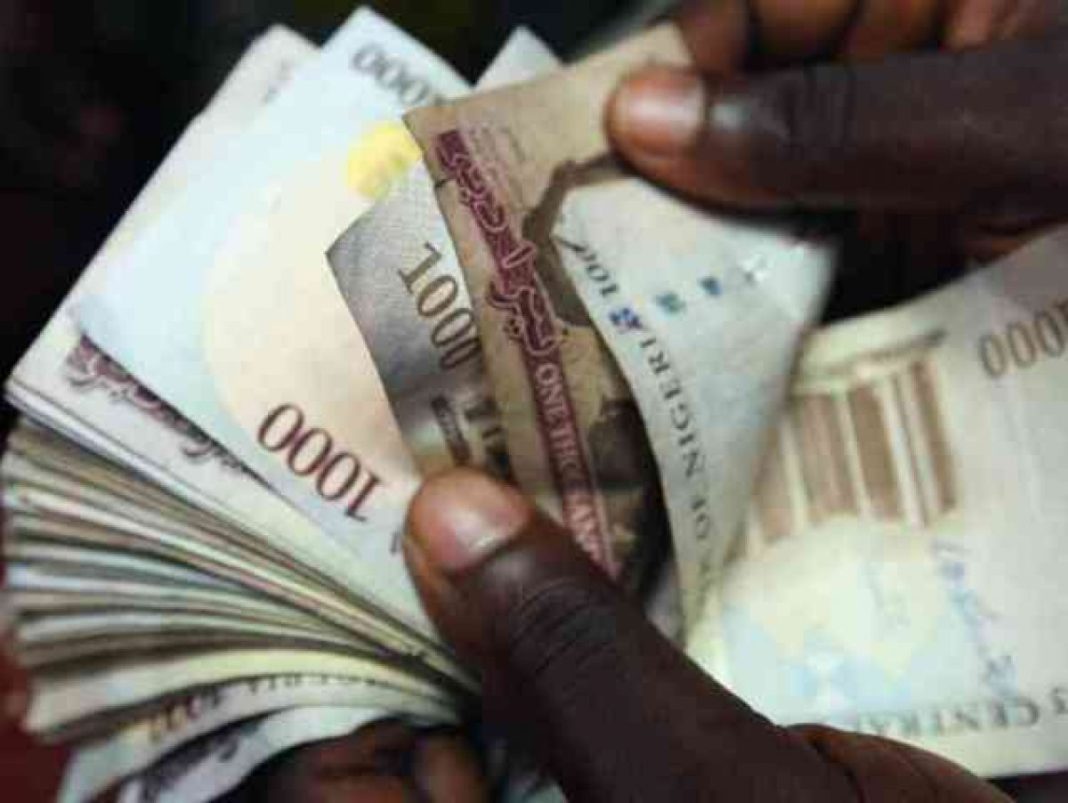Nigerians have been abandoning savings and becoming less active in their various cooperative societies, findings by The Point have revealed.
It was also discovered that most traders who are operating with loans obtained from microfinance banks have been defaulting on their various repayment terms.
This development is indeed a reality in Nigeria as the cost of living across the 36 States and the Federal Capital Territory, Abuja, has thrown millions of Nigerians into acute hunger.
Daily, Nigerians struggle to put food on the table amidst insecurity, malnutrition, infections and other social problems plaguing their environment, thus jeopardising their chances of saving for a rainy day.
Checks by The Point across Osun State revealed that there was also a sharp reduction in the number of new customers being recorded at various microfinance banks.
It was also gathered that the microfinance banks are currently finding it difficult to recuperate the funds disbursed as loans to their various customers, following their inability to service the credit facilities.
Traders who had obtained between N100, 000 and N250, 000 loans were finding it difficult to meet up with their repayment.
The Point gathered that some of the microfinance banks charge between 3.5 percent and 5 percent, while others charge between 10 and 20 percent on the credit facilities.
For those charging 3.5 percent and 5 percent, a N100, 000 loan will be repaid every day for a month at the rate of between N3, 450 and N3, 500, respectively. Some customers of other microfinance banks with the same amount of loan pay between N25, 900 and N26, 250 for four weeks.
However, it was discovered that the common interest rate on every loan from the microfinance banks is 20 percent.
For the 20 percent interest rate, the beneficiary of the N150, 000 loan is expected to pay a sum of N7, 500 every week for 24 weeks.
A customer who obtained a N200, 000 loan is expected to repay the credit facility at N10, 000 per week for 24 weeks.
A N250, 000 loan will be repaid at N12, 500 per week for 24 weeks, making N300, 000.
Some credit officers of some microfinance banks who spoke with The Point in different interviews complained that their various customers have not been meeting up with the weekly repayment amount recently.
The default of the customers in repaying the loans has mounted pressure on individual credit officers, according to them.
The credit officers who spoke under the condition of anonymity said it has become more stressful for them to get their customers to pay, saying a majority of them were complaining of a lack of sales.
A top official of one of the leading microfinance banks in Osogbo said that there has been a sharp decline in the repayment of loans given to their customers since January.
According to the official, the job of some credit officers of the bank was on the line, following the inability of their customers to repay the loan given to them.
The worker disclosed that the majority of the loan defaulters are traders whose trades are not booming again as a result of the dwindling economy.
He said, “It has not been easy at all; we are also victims of the ongoing economic hardship. We are not getting our money back as it used to be. Some of our customers who were credit-worthy have been defaulting. Traders who obtained loans to run their businesses have recently been finding it difficult to keep up with the weekly repayment.
“Our credit officers are being stressed; they are finding it difficult to recuperate our loan. Some of them are even on the verge of losing their jobs.”
A credit officer with a microfinance bank in Ilesa who did not want his name in print told The Point that some of her customers had shut down their shops and fled the town when they could no longer pay the loan.
Some of the defaulted customers, according to the credit officer, are market women who obtained between N100, 000 and N200, 000 loans to boost their businesses.
In his words, “Things are not easy for us in the microfinance banks. We, the credit officers, are bearing the brunt of the current economic hardship even more because our customers are putting our jobs at risk. They are no longer meeting up with their various repayment terms, and that is a threat to us.
“A trader who has been repaying her loan with N7, 500 every week at Isale General here in Ilesa has not been paying for the past three weeks. She complained that her business was not moving again because of the inflation that has resulted in the high price of commodities.
“We went to her shop and discovered that she did not open. Upon inquiry, we were told that she had traveled to Okada, Edo State. Her guarantor has been pleading that we give him time to locate the woman or persuade her on the phone to pay off the loan.
“Some of our customers who have defaulted on the loan repayment but did not run away are even telling us to arrest them. That is the situation we find ourselves in now.
“We usually have one or two loan defaulters before now, but the number of customers, especially traders who have not been meeting up with their weekly repayment has increased since the beginning of February.”
Aside from the increment in the number of loan defaulters, the microfinance banks are also experiencing low patronage as new customers are not coming as it used to be.
A manager of one of the community microfinance banks in Ile-Ife said despite the fact that they charge 3.5 percent on any amount of money given as loan, their customers were defaulting in repayment, while there has been reduction in the number of new customers.
He said, “We charge 3.5 percent on our loan and the payment duration is four months. Our customers have recently been defaulting on loan repayment. We are very considerate as we understand the economic realities, so our credit officers have been lenient with the defaulters.
“But new customers are not coming in. There is a reduction in the number of people coming to join us or request for loans. That is a major concern for me.”
A credit control officer of one of the microfinance banks at Oke-Fia, Osogbo, who craved anonymity said, “We charge a flat rate on any amount, depending on the duration of the loan. Our clients are not being faithful these days due to the situation in the country. Some of our customers are defaulting in their loan repayments, and we don’t have new clients.”
A foodstuff dealer at Akindeko market, Alekuwodo, Osogbo, Sherifat Adeyemo, said she obtained a N200, 000 loan from a microfinance bank when her initial capital was flattened by the persistent high price of goods, especially rice, beans and sugar.
According to Adeyemo, she was to be paying N7, 500 every week to her credit officer as agreed but could not continue paying the amount as a result of the downturn in her business.
She said the obtained loan could only buy two bags of rice and two kegs of groundnut oil.
Adeyemi said she has been pleading with the microfinance bank to reduce the N7, 500 weekly payments to N4, 000, explaining that her capital will eventually vanish if she continues to pay the required amount.
She said, “The N200, 000 loan I obtained could not buy much goods because of the skyrocketing high prices of things. And there is no way you will make enough profit if your goods are not much; that is what I am facing.
“I have been using the little profit I made to augment the cost of goods I buy all the time. The prices of goods are not stable, they keep going higher and that has been making it difficult to make a profit. We are practically running at a loss.
“I discovered that if I continue to pay the N7, 500 every week, I will not have anything to run my business in the next two months. I have pleaded with the microfinance bank to help me reduce the amount, but they are not yielding yet. I am still owing two weeks’ payment as I am talking with you.”
Another trader, Dorcas Iyiola, who is a pepper dealer at Oluode Market in Osogbo, lamented that the continuous hike in the prices of goods and commodities has made a mess of traders’ capitals, explaining that the amount that was used to buy four baskets of pepper three months ago was being used to buy a basket now.
“This is a trying time for us traders. We are the ones bearing the hardship the most. The continuous increment in the prices of goods has reduced our purchasing power. Virtually every one of us is running a business with loans; unfortunately, we are struggling to make profit now. In fact, we are running at a loss because of the high prices of goods.
“It is now difficult for us to repay our loan. God should please intervene; the economic hardship has made a mess of what we have,” she lamented.
Meanwhile, further findings by The Point revealed that Nigerians who save their money in cooperative societies and with thrift collectors have not been forthcoming.
A thrift collector, Rasheed Amoo, said, “My customers have been disappointing me. They complain of low sales and they no longer give me their savings. It is really affecting my business.”



